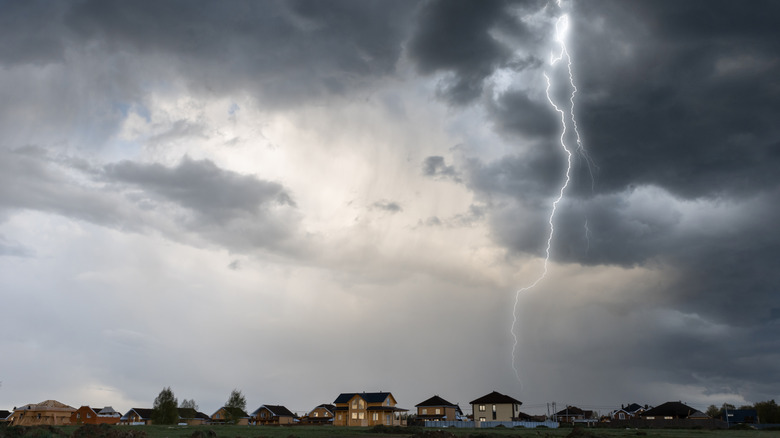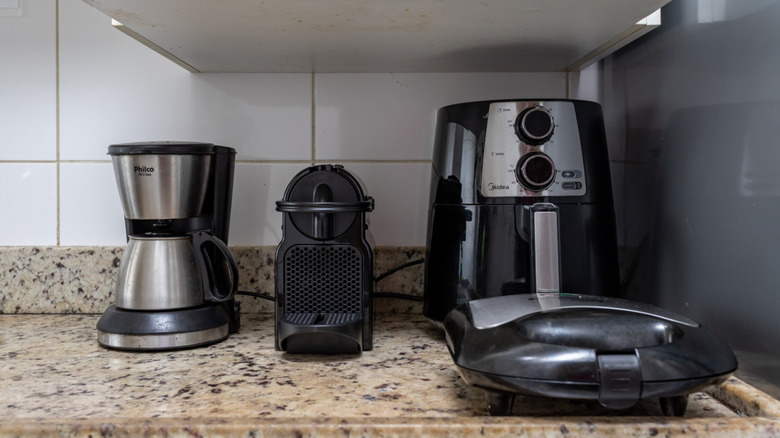The Most Important Kitchen Appliances To Unplug When A Storm Comes Your Way
For many, the sound of thunder and the view of lightning are a soothing experience. Bad weather can cause danger, though, and taking precautions will help keep your home and your loved ones safe so you can enjoy storm season with peace of mind. Prepare your house for an incoming storm by unplugging countertop kitchen appliances. Even the most popular kitchen appliance brand in America isn't going to withstand everything. These countertop appliances include coffee makers, stand mixers, slow cookers, blenders, toasters, toaster ovens, and the widely hyped air-fryer (don't worry, you'll be reunited once the storm subsides).
A power surge can fry your countertop appliances and can lead to fires and damage to your home's electrical system. Many large appliances like dishwashers and refrigerators have surge-protection built in, but not all of them, so it's important to check yours and know what you have. Around 40 million bolts of lightning are recorded in the U.S. each year, and they can cause power surges in several ways. The first is if they strike your home or power lines directly. The second is called inductive coupling and happens when lightning strikes nearby and creates a magnetic field that sends destructive energy to your home electrical system. Another way is through ground potential rise. This is when lightning strikes the ground, and that energy travels through wires, plumbing, and other means and enters your home.
Other causes of power surges and how to prevent damage
If lighting doesn't directly cause a power surge in your home, there are other factors that can. When a storm is bad enough, there's a chance that some homes could lose power. Even with no lightning strike, a power surge can happen whenever there's a sudden increase in electrical current. This jolt of electricity often happens after the power has been out and suddenly comes back on. While most people think of thunderstorms when they think of losing power, this can also occur if there's a grid overload, like on a hot summer's day when everyone turns their air conditioning up to full blast.
The possibility of damage from a power surge depends on a lot of factors, including your home's wiring and the age of your appliances. So, make sure you're informed about the wiring where you live and know how long your fridge should last. Surge protectors can also be helpful for some household electronics, like TVs and laptops, but they weren't designed for small appliances, so keeping these unplugged whenever they aren't in use is the best way to prevent any damage to them or your home. Plus, leaving your toaster unplugged gives you one less thing to worry about when a storm comes rolling in.

